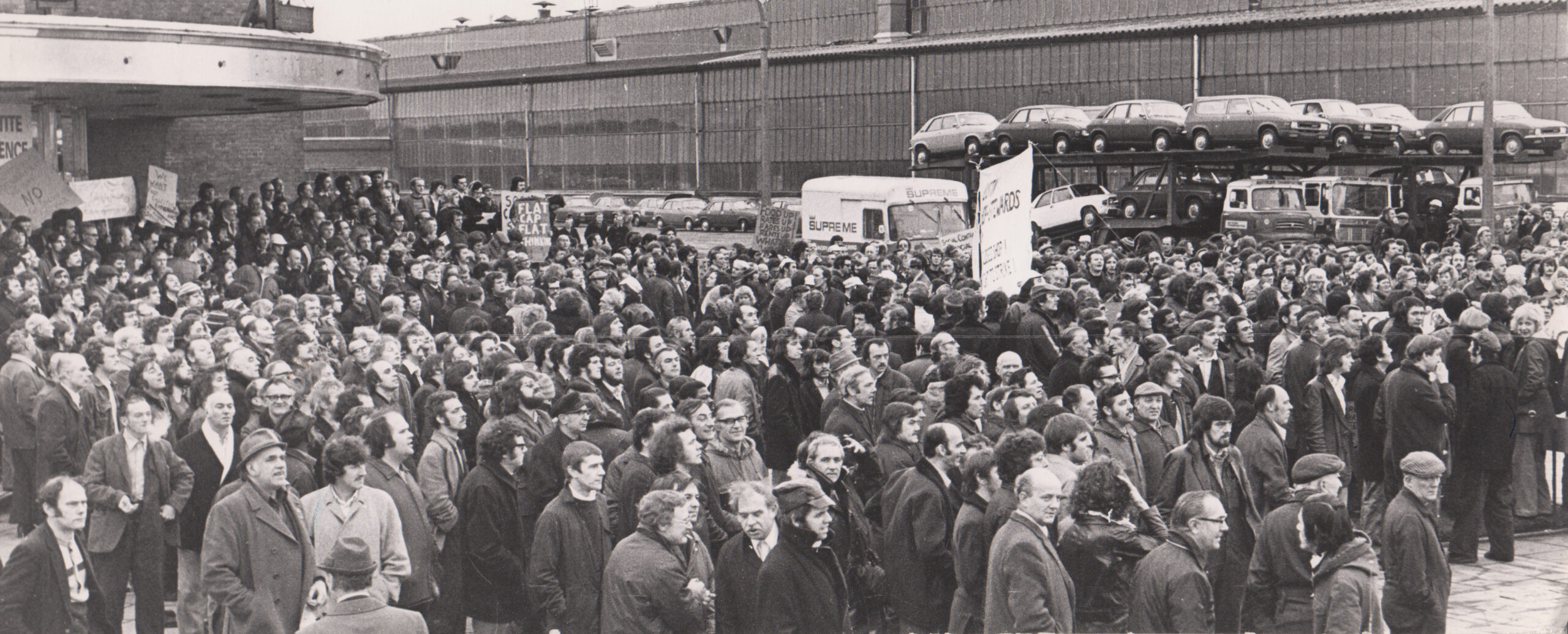A demonstration of the role of a Marxist in the workplace
Dave Gorton, Unite shop steward
There were 612 strikes recorded at British Leyland’s Cowley plant in 1969 – workers today will be as amazed at that figure as the bosses were horrified by it then.
The years that signalled the end of the post-war boom brought with them increased struggles for better wages and the improvement of working conditions. This was seen clearly in the British car industry.
On The Track is one man’s recollection of that turbulent period. Bill Mullins was no ordinary shop steward; he went on to become a Midlands organiser for the Socialist Party, then Militant, and then its national trade union organiser.
I had the privilege of working closely with Bill for many years and not once did he try and tell me: “this is the only way to do it”. A generation of Marxists was taken under his wing and we learnt how to build our own confidence and earn trust in the workplace. No book can do this.
But Bill’s memories in this short volume are still valuable – they demonstrate the role of a Marxist in the workplace – bold but adaptable, able to listen but not scared to talk and an ability to see ‘the bigger picture’.
Disputes
How many times have we seen disputes fail because the leaders have either been too timid or too rigid? How often have stewards been picked off by management because they allowed themselves to become isolated?
The 1970s saw the British trade union movement at its peak – 13 million workers organised by the end of the decade – a figure, with the huge decimation of manufacturing in Britain, that is unlikely to be surpassed. But it would be completely wrong to write off trade unionism and struggle just because car manufacturing, mining and steel production has been exported by capitalism to cheaper shores.
Workers will always be forced to struggle while huge inequality exists between those who own the wealth and those who create it.
A campaign by unions that sought to explain how capitalism works to exploit workers, rather than hide it, and then a fight to tackle that exploitation could boost recruitment by millions.
If all unions sought to organise, say, workers on zero-hour contracts by promising action, then real gains could be won.
Margaret Thatcher’s guru, Keith Joseph, wrote at the end of the 1970s: “We are now seeing militants increasingly taking over control from union officials”.
It was militants like Bill he was referring to. We owe them a debt of gratitude. Read this memoir, use it to learn the lessons from the past, adapt them to 21st century Britain and build the forces of socialism that will transform the everyday lives of ordinary working people.
On the track
An account of trade union struggles at British Leyland in the 1970s by Bill Mullins (former TGWU shop steward)
£7 including postage
Available from Left Books,
PO Box 24697, London E11 1YD
020 8988 8789










